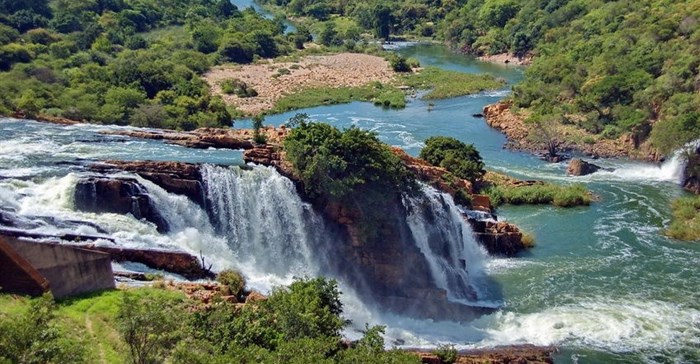
Related
Top stories






More news


Marketing & Media
Ads are coming to AI. Does that really have to be such a bad thing?














Andy Furlong, director of policy and communications at IChemE, stated that, “Chemical engineers recognise the importance of considering all three components of the nexus – water, energy and food – together when devising integrated solutions for a more sustainable future.” He further said, “We are confronted by a multi-pronged dilemma that includes population growth, increasing urbanisation, the need to improve living standards, and climate change. The situation is multiplex and any solution to the world’s water, energy and food challenges must be based on a holistic, integrated perspective.”
Appreciation of how interfaces between water, energy and food are moulded by environmental, economic, social and political fluctuations can assist in better managing the synergies and trade-offs among them. When observing the nexus in the African context, one has to also consider, as the United Nations Economic Commission for Africa (UNECA) accentuated, the internal challenges facing African countries which include unrelenting poverty, high levels of unemployment and the degradation of natural resources which are decisive for economic activity. These challenges, however, can also be recognised as introducing opportunities for change and innovation. The notion of a green economy has been established as an approach to framing a myriad of opportunities that emerge from this impasse. Obstacles such as these, together with the mentioned nexus, are key entry points into the discourse on the green economy. South Africa, like many other countries, has committed to transforming into a green economy which can generally be described as “a set of economic activities that result in improved human well-being and social equity, while significantly reducing environmental risks and ecological scarcities”. As a country dealing with environmental degradation and climate change, South Africa certainly needs an inclusive green economy which considers, amongst various key areas, the creation of green jobs.
An intriguing development to discern is the Department of Trade and Industry’s (DTI) introduction of the Black Industrialists Programme, an initiative that aims to fund no less than 100 black-owned companies in order to expand and transform SA’s distorted industrial landscape. With this development, one cannot help but wonder if the policies around this programme have considered the goals set out in the National Development Plan (NDP) for the country to have greener industries over time. Industry makes use of a large amount of energy and water to produce a number of products and services, something that must be taken into account with a surge of new companies. The agricultural sector, for example, which is a considerably large sector with respect to land area and the amount of water and energy it utilises, puts widespread strain on the environment. Moreover, the agricultural sector is critical to the prosperity of a country’s citizens thus being fundamental to the green economy globally and in South Africa. Ultimately, industrial policies, including the policy around the Black Industrialists Programme need to consider the nexus between water, energy, food and the environment, and additionally, insist on low-carbon energies (to reduce greenhouse gas emissions) while creating green jobs. The path dependency and carbon lock-in behaviour in South Africa will undoubtedly prove to be a challenge, however, government departments need to cease working in silos in order to reframe economic policies.
It is worth noting, nonetheless, that policymakers have attempted to form a relationship between energy and water. Manisha Gulati, an energy economist with the World Wide Fund for Nature (WWF) South Africa, states in her chapter titled “The Energy and Water Nexus: The Case for an Integrated Approach for the Green Economy in South Africa” written in MISTRA’s publication Earth, Wind and Fire, that water has been identified as a fundamental limitation when developing a strategy for impending electricity generation capacity. She further explains that the Biofuels Industrial Strategy reduced the penetration level of biofuels in the national liquid fuels pool from 5% to 2.2% following the National Treasury’s apprehensions with regards to the implications of the subsequent water requirements. Even with this consideration, however, the nexus approach has not quite been implemented by policymakers as there is still apparent dissonance. Gulati provides an example of this deficiency which is the fact that IRP 2030, the integrated resource plan for electricity, “only considers water usage under the decision-making criteria. It does not consider either the risks of potential water scarcity for the planned generation capacity and electricity supply or the electricity sector’s ability to provide reliable and sustainable energy supply in the event of water insecurity”. She continues to say, “Similarly, the mandate for all new coal power plants to utilise dry-cooling technology can be short-sighted if it omits an effective and long-term solution for a low water-intensive electricity system”.
On 29 June, MISTRA will be hosting a roundtable to deliberate on the role of black industrialists in the green economy and to navigate through opportunities for implementation of some of the major insights from MISTRA’s Earth Wind and Fire report. MISTRA aims to dissect the nexus between the environment, food, water and energy, together with low carbon innovations and alternative energy systems, renewable energy independent power producer procurement (REIPPP) and waste management and hopefully assist with placing policymakers on a correct path towards a green economy. This event will be held at the Development Bank of Southern Africa (DBSA) in Midrand.